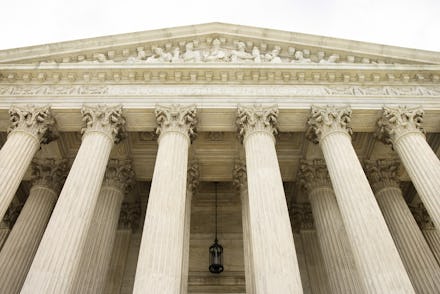What to Know About the Supreme Court Case That Could Cripple Unions

The Supreme Court appears likely to hand down a decision that could devastate the organizing potential of public-sector trade unions, which represent a crucial segment of organized labor across the nation.
The case, known as Friedrichs v. California Teachers Association, involves 10 California public school teachers who argue that being forced to pay the state's teachers union represents a violation of their First Amendment rights, as their dues effectively fund the kind of political activity that they personally disagree with. The New York Times' Supreme Court correspondent Adam Liptak reported that the a majority of the court seemed ready to agree with them in oral arguments on Monday, and a case in favor of the teachers could end up being one of the most consequential blows against organized labor in decades.
The unions disagree with the idea that the mandatory teachers' fees constitute an ideological imposition. As Liptak reported:
Unions say the teachers' First Amendment argument is a ruse. Nonmembers are already entitled to refunds of payments spent on political activities like advertising to support a political candidate. Collective bargaining is different, the unions say, adding that the plaintiffs are seeking to reap the benefits of such bargaining without paying their fair share of the cost.
A decision in favor of the teachers banning mandatory fees would devastate the ability of public employee unions to pool together the money necessary for their survival and bargaining capacity.
The stakes: But the teachers' argument appears likely to prevail. As Bloomberg noted, the argument being framed by conservatives is that collective bargaining, the process by which employees pool together to lobby for their grievances against their employers, is an innately politicized activity, and thus one that cannot be required.
"The Supreme Court has already said government workers can't be required to fund union activities if they're unrelated to collective bargaining. But the plaintiffs argue that collective bargaining is inherently political when the government is the employer," Bloomberg reported.
Justice Antonin Scalia, the likely swing vote on the matter, has spoken in a manner that suggests he will side with the teachers against the unions.
The court's decision, which should come down by the end of June, could have a transformative effect on the workplace-relations landscape in the United States. The public sector is unionized at more than five times the rate of the private sector, but if public employees can reap the benefits of union-negotiated contracts without paying mandatory fees, then it's quite likely that many of them will opt out of paying them.
Union membership in the U.S. has nearly halved since the 1980s due to a wide variety of reasons, ranging from broader shifts in the kinds of sectors that dominate the economy to a hostile legal environment. This decision will likely only accelerate that decline.